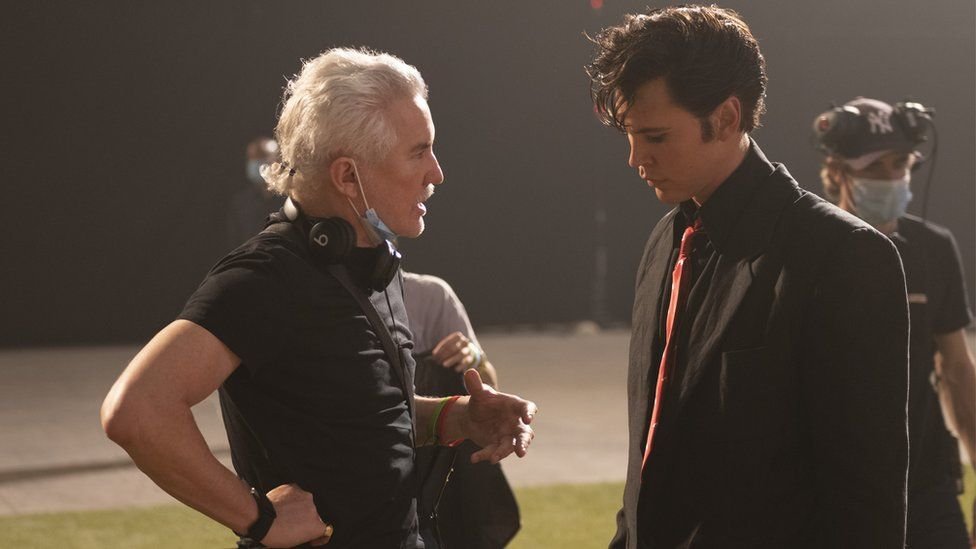Elvis - Flawed, Yet Uncompromised
Warner Bros.
Curious readers, what a summer we’re having. I, for one, have needed its blessing. My partner and I recently made a pledge to spend more time this year doing the things we love most; writing, photography, adventures in the sun and, naturally, the cinema.
Last time out, I wrote a thematically personal piece that ended with the promise of a follow-up exploring my recent viewing of Elvis (2022). My local cinema is still peculiarly enforcing seating restrictions which aren’t entirely easy to decipher, but we took our favoured seats in the centre of the balcony, and weren’t troubled much for it.
Over the next two and half hours, what I came to endear most about Baz Luhrman’s biopic of Elvin Presley was its devotion. Not towards a truthful portrayal, such a quality I personally deem to be somewhat of a moot point when it comes to adaptations. These are fictionalisations, after all. It came for the sincere manner in which the film clung to the filmmaker’s vision. His stylistic impulses were plain to see throughout. For better or worse, they were never sacrificed to compromise.
With the exception of a few choice examples, such as Love and Mercy (2014) and Control (2007), music biopics have often followed a more generalised narrative, leaning heavily on the authenticity and gravitas of their main lead to capture the hearts and souls of the audience. There are certainly still elements of this evident in Elvis, and there’s arguably a case to be made that the film lacks the real sense of substance that it’s so very keen to merit. But, on the flip side, there’s a lot to like about the panache and vigour that comes to light with Luhrman’s biopic. Elvis was a hurricane, he was radical showmanship. The film is successful in committing to that sentiment.
It’s natural, though, to judge a film on its narrative, especially if one claims the disposition of a writer. While the film makes some notions to explore the blues and gospel context of Elvis’ musical roots, as well as his stage antics, the film is mostly concerned with portraying the complicated and essentially problematic relationship between Elvis (Austin Butler) and his manager, the overtly greedy Colonel Tom Parker (Tom Hanks). The film’s intent to portray Parker as more of a villainous figure is thinly veiled, and while Tom Hanks’ characteristically rich performance lends a smidge of likeability to the role, it’s often overshadowed by the general scepticism of his character. The film’s eccentricity surely comes into play here also, as Parker often comes across as something of a caricature, in keeping with Luhrman’s more hyperbolic style.
Austin, meanwhile, gives a stellar portrayal of the beloved “King of Rock and Roll”. He forgoes a real sense of self, absorbing The King’s mannerisms to give a performance that feels relatively assured against the film’s chaotic backdrop. He lends a vulnerability to Elvis that comes across in his prolonged drug use and generally abusive behaviour, more so in the latter stages of his career.
Ultimately, however, much like the later appearance of Elvis, the film’s 159-minute run time feels bloated. Elvis’ packed schedule; his drug use; the death of his mother; his unhealthy relationship with Parker and the pull of fame, all worked to eventually bring about the untimely passing of this cultural icon. Yet the film repeats this assertion throughout, while we’re aware of what caused his demise long before the final minute. As a consequence, the sting and the bite of the film’s tragic centre become nullified through repetition.
***
All in all, then, Elvis came to be a mild-mannered experience from a critical point of view. Flawed, yet uncompromised. But the event itself signified a return to what I consider a congenial house of fun and fascination. The cinema, with the one I hold dearest.
